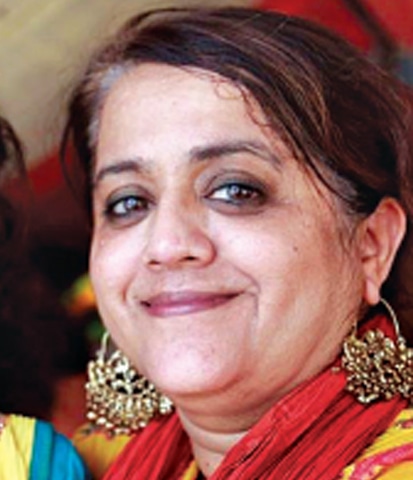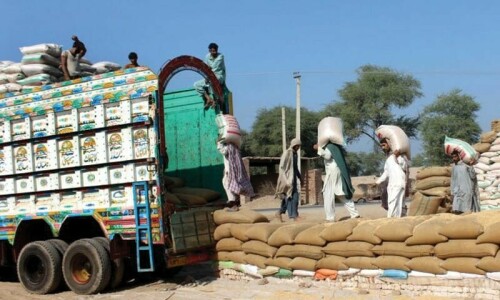
Shumita Didi Sandhu, an independent filmmaker from India, was visiting Harappa when she met a Pakhiwasi girl, Riffat, near the archaeological site and developed a personal relationship with her.
A trained filmmaker, who had worked with Jahnu Barua, recently with Sudhir Mishra as his assistant producer in his film Aur Devdas, which is another take on Devdas.
She later started a cross-border production house Blue Owl Productions with Ikram Basra, a producer with PTV, whom she met in Bombay.
“During the talk with her, Riffat told me that she was an orphan, asking me to be her Ammi,” she says while talking about the Pakhiwasi girl. She says that Riffat’s group had only one mobile phone which often remained turned off when she called from India. The Pakhiwasis had given her many locations, including Wazirabad, Chichawatni, Gujrat and Faisalabad, where they could possibly be found.
“When I got connected at last, I was told that Riffat’s group had moved to Kamalia and that she was getting married.” “I collected money to fund her marriage initially, buying something for her dowry but later thought of making a documentary of it. I collaborated with Danyal Rasheed, an independent filmmaker from Pakistan, and started working on a documentary.”
Shumita came from India and participated in Riffat’s marriage, funding the whole event and recording it for her documentary along with Pakistani filmmakers which made it a cross-border project. She says that one more session of the film is left that includes a bit of Riffat’s post-marriage life in Sargodha and Najm Hosain Syed’s poems that he has written on Pakhiwasis.
Where Riffat is married, her husband’s family has two-marla land but no house and they set up their Pakhi (hut) on it. The documentary film project is being financed through crowdfunding where highest contributor had given $300.
“The marriage as well as documentary expenses are being borne through crowdfunding. I had initially some money which I had put in but I collected from others. We need money for post production and sending it for festivals,” she says.
Talking about the gypsies, Shumita says that Pakhiwas, who are always on the move because they are landless and live on others land. Society does not accept them in any capacity, she says, adding that she was also warned by the people who said that there were always criminal elements among them. Society is wary of them because they are landless and always on the move, she says.
“What intrigued me in the beginning was the spirit of the Pakhiwasi women. They are bold and assertive and most of them are breadwinners. Despite so many odds they all have high spirits which was an inspiration for me on the personal level.”
Shumita thinks that it’s not enough that we just record the Pakhiwasis and their lifestyle. “Something should be done for them to preserve their talents. They don’t go to school because they are constantly on the move but they are very creative and have many talents. They make beautiful patchwork quilts which are valuable and perhaps we can sell them,” she says, adding that workshops can be planned for their children to channel their talents, including music and theatre.
Shumita says that she did not have any agenda when she started her project as it was spontaneous, saying she was not thinking to follow Riffat. She says that the post-production of the film is still to be done and she does not know yet what story would come out of this documentary. “However, Riffat is the inspiration for it.”
She hoped to finish the editing of the documentary by December to make it available for screening. She has a plan to get three separate versions of the documentary, for classrooms in educational institutes, for Riffat’s family to watch besides the general screening. Shumita wants to send her documentary to universities in the West, saying that who knows somebody may get inspired by it.
Published in Dawn October 4th, 2015
On a mobile phone? Get the Dawn Mobile App: Apple Store | Google Play











































